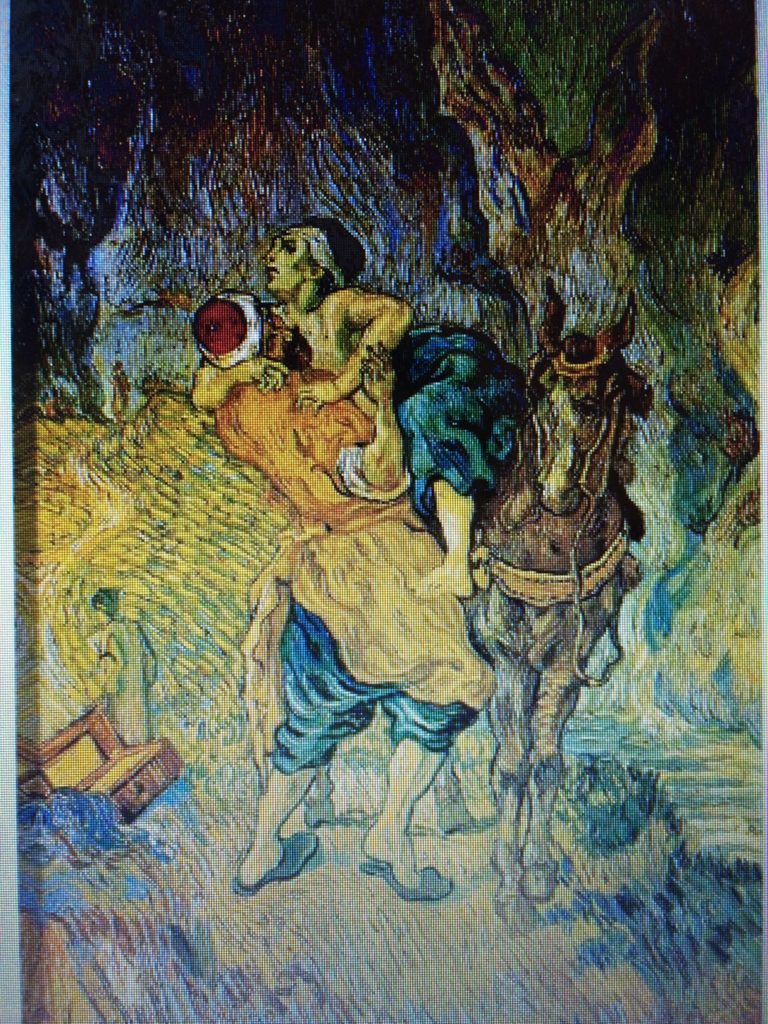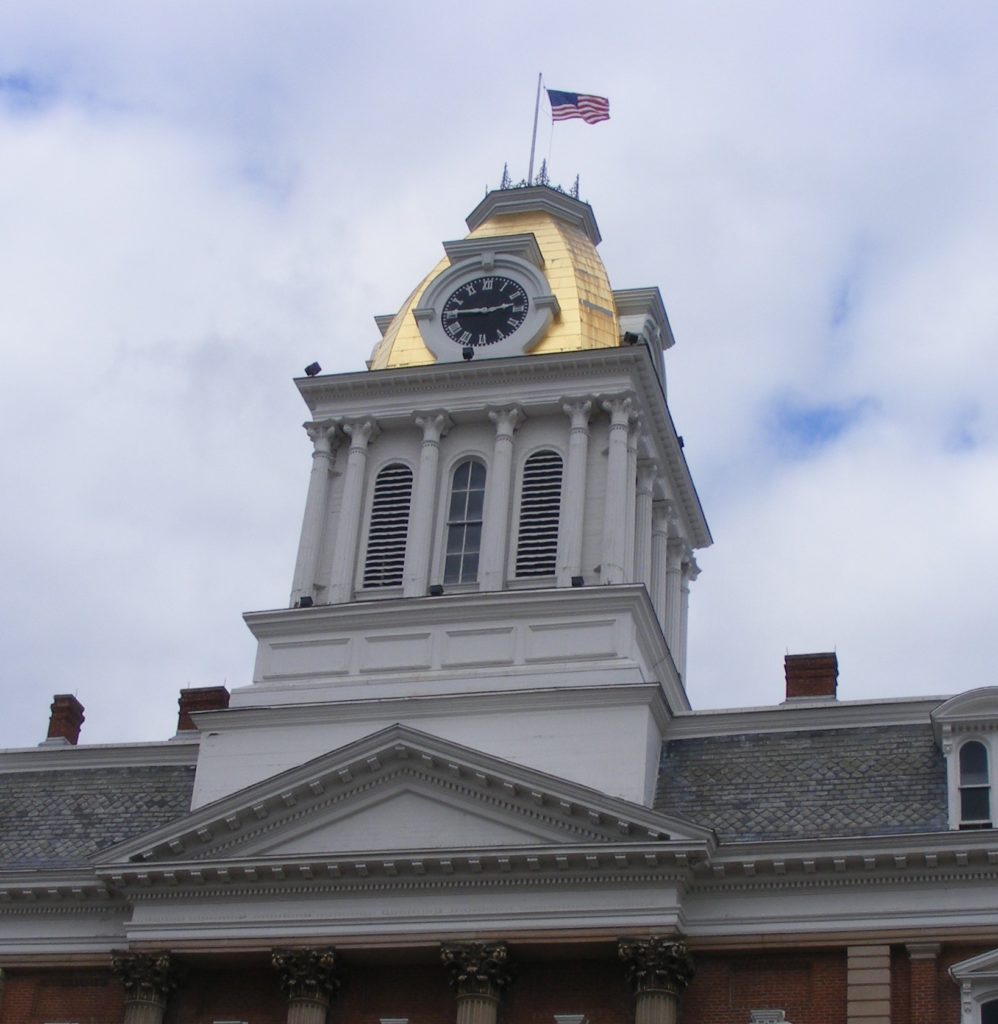The one thing we must not do

Bullies were throwing stones at a cowering donkey and other smaller creatures with leprous blotches on their skin. It reminded me of Vincent Van Gogh’s incredible painting of the Good Samaritan helping a wounded fellow onto a donkey after he was attacked. At that moment, I heard a voice ask, “Who knows what you are capable of?”
I woke up then, with those words ringing in my ears. “Who knows what you are capable of?”
Were they directed toward those abusing sick animals, or to me?
I forgot about it, as often happens with dreams on the misty edge of consciousness. Later that day, I read a meditation in Celtic Daily Prayer that began with a similar question: “What can you do?”
The author says in the April 24 reading that in our greatest hour of suffering, that there is very little we can do.
You can debate that, until you talk with a parent whose child is on a ventilator. Until the doctor says, “There’s nothing more we can do,” or your home is destroyed by a tornado.
The meditation says one thing we can do is weep. Our tears are acceptable to God. The human story from start to finish is washed in them.
I admire the Indiana County Court House, built in 1869. Every person who helped dream and build it into existence is long gone. All the original judges and attorneys are gone. The passageway between the court house with its imposing Empire architecture and the matching jail along North Sixth Street was a fateful bridge for six prisoners, hung there. Whoever they were, whatever their crimes, they are only remembered in the dusty pages of Clarence Steven’s history of the county.

My neighbor worked for the bank that acquired the court house with a 99-year lease almost 50 years ago. He spoke of stepping outside the cupola after it was painted with gold leaf, and erecting the flag pole upon the bell tower in a fierce wind.
Another friend, Paul Botsford, told us about the painstaking process of restoring the four-faced tower clock, the largest one in the country when constructed. We make our small marks upon history, our temporary contributions in the face of constant change, and then are gone to this side of eternity.
But what we do here matters.
I glanced at that clock-tower on the way to my daughter’s wedding, 20 years ago on a steamy afternoon in the first June of this century. Both are still ticking. On a dreary day I can see the gleaming dome downtown, a few miles from my house, and am glad we chose to live here.
In my disturbing dream, I’m the one asked, “Who knows what are you capable of?”
When I was a child, my neighbor, Mrs. Work, had a house fire after buying a new Lazy Boy recliner. She picked it up in her living room and carried it to her front yard. How did she do it? In her case, it was coritsol surging through her veins. The answer for believers is we’re capable of far more than we can imagine. The Secret of the ages is this: “Christ in you, the hope of glory.”
Meditate upon that thought, the Creator of the universe dwells in us.
If those words make us shiver at what God has equipped us to bear and do, it is the Spirit, flowing in our veins, that assures us that we, the Body of Christ, are privileged to share in the suffering of the world on behalf of Jesus, the head of this mystical body.
When it comes to personal tragedy, how we respond makes a difference against the dark skies of loss. The Northumbria Celtic Christian Community, which assembled meditations in my daily reader (and which I often fail to open) says there is one thing we must not do.
We must not become bitter.
Bitterness uproots inner peace when we need it most.
Help me choose wholeness over resentment, Lord God.
Years ago, Jim dug wild poppies and we happily planted them in our yard, unaware the roots were wrapped in poison ivy. Within a few days it traveled through our systems, we were both overcome with its itchy strength, and ended up in the E.R.
Bitterness is like a poison growing underground, we don’t understand its potency. God has better plans for us than succumbing to its power.
I’m going to keep on hoping. Keep on weeping. Keep on looking for a golden dome glowing in the dark.
All will be well.
Texting Thru Recovery/Indiana Gazette
Good Samaritan by Vincent Van Gogh
Indiana County Old courthouse cupola photo from Indiana Co. Tourist Bureau

3 COMMENTS
I was once falsely accused of doing something and harshly berated by a superior who believed the acuser. I knew that I could not be proven guilty because I didn’t do what I was accused of, but I couldnt prove my innocence either because there were no other witnesses
As I listened to the accusation and false speculations, a calm filled me as the words “Yea though I walk through the valley of the shaddow of death I will fear no evil, for Thou art with me.” came to me, and the the thought, ” Be still and know that I am God. ” filled my mind. I wanted to defend myself and argue, but it was obvious that my words would fall on deaf ears, so I sat in silence. When I was asked what I had to say for myself I said, “I told you what happened when ypu asked. You didn’t believe me. I have nothing else to say.I
Life went on. It wasn’t comfortable to go through that time of trial, but God’s words had come to me at the exact time I needed them and given me peace. Those who believe will have God’s strength to do what must be done, or endure what must be endured. There will be life after the time of trial.
Thanks for sharing & for this illustration of grace, Janet. Be still & know…!
Thanks, Janet!
Comments are closed.